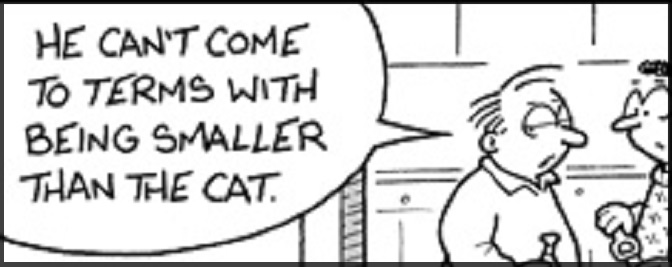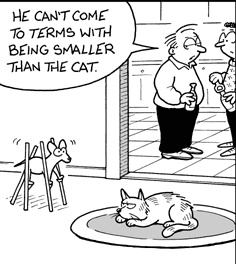Inferiority (is) Complex

It’s a bit on an old idea now, but saying someone has an “inferiority complex” is one of those psychological terms that has made it into everyday language, but what does it actually mean?
Technically inferiority complex is defined as: “…a lack of self-worth, a doubt and uncertainty, and feelings of not measuring up to society’s standards.” See here what Wiki says: http://en.wikipedia.org/wiki/Inferiority_complex
As an idea it goes back to the days of Freud, but it came up in conversation the other day and it made me think about how it applies to social anxiety.
We all have moments of feeling “inferior” to others, and this may in fact be true sometimes. There are plenty of people that are better at things than us, but when we feel this to be globally true: that everyone is better, smarter, more attractive than us, then it can really get in the way.
This part will be recognisable to anyone who has struggled with social anxiety or phobia, but what is less familiar (and more complex) is how it can lead to what therapists refer to as ‘over-compensation’.
Sometimes people can over-compensate for feelings of inferiority or insecurity by seeking to prove themselves, taking outrageous risks, or doing seemingly fearless acts to prove they aren’t the person the feel they are. This can be a good thing short term, but it very rarely solves the problem.
I’ve spoken to plenty of people who struggle with social anxiety in their personal relationships but can ‘t make sense of how fearless they can be at work. Giving a presentation to a group of 20+ people? Piece of cake! Talking to an attractive potential partner over dinner? Terrifying!
Human beings are complicated, and while we strive to prove ourselves in one area, we can feel terrified in another. Often feelings of inferiority that feel either just “true” or something to fight against can explain the seeming contradiction.
And the solution? Like most things, easier said than done.
In a nutshell it helps to be able to observe and create distance from the internal narrative that drives these ideas, accept our imperfections and expect ourselves to be human: neither better or worse than most.
Mindfulness, a core part of my treatment programme, can really help as it assists us to be able to observe ourselves and be more compassionate. Because sometimes isn’t complex. It’s just as simple as learning to be kind to ourselves.



